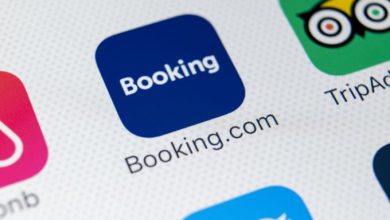
As demand returns for groups and events, let’s not slip back into ‘order-taking’
Based on the conversations I'm having with clients and contacts it seems that demand for groups and events is coming quicker than expected
At most hotels, salespeople have either been recalled from furlough or from helping to cover hotel operations. As they return to their old “chairs,” this is a great time for leaders to set new goals and/or for self-motivated sales supernovas to create new habits for themselves.
Although the number of leads is significantly higher than it was a year ago, demand is still not where it once was, so this is a wonderful time to establish new sales habits.
As my frequent readers know, I have often written about how 10 years of interrupted growth in demand caused what I call “sales slippage,” whereby too many salespeople grew complacent and were able to survive off inbound demand. When contracts came easy, too many salespeople did little more than to reply by way of the same digital “channel” in which the lead came in.
In other words, if the lead came in via CVENT, salespeople simply replied with a bid. If the lead came in via direct email or was forwarded on from the brand’s National Sales office, too many salespeople replied with a generic PDF brochure or electronic “e” proposal. Too few made any effort to “connect with the customer” and to personalize their responses. What’s more, I often heard from meeting planners that some hotel salespeople were prone to miss key details included in RFP’s.
Chances are that the “lead stream” at most hotels is still likely in the trickle stage right now, but I predict we will soon see fast-flowing streams and not long after that raging rivers.
Therefore, now is a good time for sales leaders to help their direct reports create and maintain new sales habits such as these:
When leads come in, reach out for a personal connection. Pick up the phone, briefly introduce yourself, and say “I just had a few quick questions so that I could send a more personalized proposal…” Most planners and buyers will respect well-thought-out questions that show you did your homework. Do not annoy them with “textbook questions” such as “Can you walk me through your ideal, dream event?” or “What are you looking for in a hotel?”
If you get voicemail, make sure your voice conveys enthusiasm and that the message is succinct. If they do not phone you back very soon, then send an email listing your well-thought-out questions.
If they still do not respond, proceed with sending a proposal over based on what you know so far.
It is fine to use generic proposal templates but use the first paragraph or two to paraphrase and restate what you know so far about the meeting, group, or event.
Quickly skim your PDF format proposal or “e” proposal template and delete anything that is not relevant. For example, do not mention amenities and services which they will not have time to use due to their agenda or calendar dates.
Likewise, delete any images that do not fit their profile.
If you reply via email, always ask the recipient specifically to confirm receipt. I usually say “May I ask that you please confirm receipt to ensure that the email does not accidentally get sent to spam?”
If you reply “in-app” (such as at CVENT or in platforms provided by your local CVB or DMO), always send an external email to confirm receipt (and to stand out from the others).
End all correspondence by expressing interest in securing their business such as “Let me know what else I can do on our end to win the opportunity to host your group.”
Always leave the “next step” on your “to-do” list. Even when the prospect replies by email (or tells you in a conversation) something like, “Okay, well I will go over this with my boss on Tuesday and then give you a call you…” always say “That sounds terrific! And I will reach out again too to see what else we can do to secure your business.”
Besides replying to the inquiry, follow-up at least 2 additional times. Vary the follow-up “medium,” for example a phone call and then a few days later an email.
Use a “tech for touch” approach to put people and personalities back into hotel sales. As frequent readers know, I am a huge advocate for using personalized video email messages. For an example of how Mission Point Resort in Mackinac Island uses this medium, email me directly: [email protected]<mailto:[email protected]> This is a wonderful way to “put a face with a name.”
Use an online scheduling app to make it easier to connect for real conversations and not just email exchanges. Calendly is a great option and it has a free basic account.
Once you schedule real conversations, take it to Zoom or Teams when possible. One good thing that the pandemic did is make people generally more comfortable being on video calls, so use this medium to go “old school” and make it personal.
Although this post refers to going after inbound leads, it is also important to set a designated time each week (or time of day) for proactive prospecting. Once you use effective lead research as we have covered in previous articles here, then most of the above sales habits will apply pretty much as is.
Author: Doug Kennedy is President of the Kennedy Training Network, Inc. a leading provider of hotel sales, guest service, reservations, and front desk training programs and telephone mystery shopping services for the lodging and hospitality industry. His articles have been published worldwide and he is the author of “So You REALLY Like Working With People? – Five Principles for Hospitality Excellence.”
Doug Kennedy is president of the Kennedy Training Network. Doug’s articles are originally published in www.HotelNewsNow.com” and AccomNews shares them with permission.
Doug is a leading provider of hotel sales, guest service, reservations, and front desk training programs and telephone mystery shopping services for the lodging and hospitality industry. He continues to be a fixture on the industry’s conference circuit for hotel companies, brands and associations. Since 1996, Doug’s monthly training articles have been published worldwide, making him one of the most widely read hospitality industry authorities.







